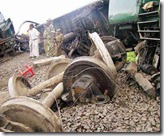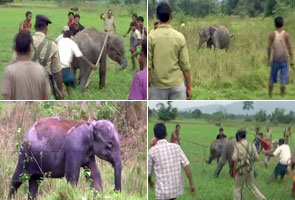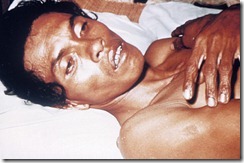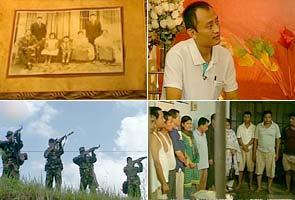By Nishit Dholabhai
 New Delhi, Oct 27 : Beijing is using the Northeast militant groups to gain information about Indian Army deployment in Arunachal Pradesh, a National Investigation Agency probe has claimed.
New Delhi, Oct 27 : Beijing is using the Northeast militant groups to gain information about Indian Army deployment in Arunachal Pradesh, a National Investigation Agency probe has claimed.
Sources said National Socialist Council of Nagalim (Isak-Muivah) leader Anthony Shing, picked up from Nepal and arrested in Bihar earlier this month, had told investigators he had provided information to China on the deployment of the Agni missile in Arunachal.
The Agni-II long-range missile is said to have been deployed somewhere in the Northeast. “Shing visited China six times in the past year,” an official said.
Following Shing’s arrest, another “contact” who lives near the China-India border has been “activated” by Chinese authorities, the sources said. The “contact”, who belongs to a powerful Naga tribe, apparently has ties with the NSCN-IM and is married to a Chinese woman.
Shing was the NSCN-IM’s China point man and a major weapons procurer from Thailand and China for the Naga outfit and other Northeast rebel groups.
The NSCN-IM has been in touch with Beijing’s ruling communists since the 1960s when its general secretary, Thuingaleng Muivah, trekked to China at least three times via Myanmar’s jungles with his associates.
It’s unclear whether the secrets, if any, have been leaked to China with the approval of Muivah at a time he is engaged in peace talks with Delhi. The Naga outfit, though, is believed to be keeping its options open in case the talks with the Centre fail and its cadres have to return to the jungles.
Doubts, however, persist regarding Shing’s claim. A senior government official said that even if some information was passed on, it was probably of a trivial nature.
Chinese intelligence agencies are known to be cultivating contacts like Shing and using them to get information on the Indian armed forces deployed in the Northeast.
The NSCN-IM’s rival Naga group, the NSCN (Khaplang), too procures arms and ammunition from China. So does Assam’s Ulfa whose chief, Paresh Barua, is believed to be shuttling between Yunan in China and locations in northwestern Myanmar.
Shing was deported to Nepal from Thailand on September 29 and later arrested by the National Investigation Agency. Sources said he probably had bank accounts in Bangladesh and Thailand, and was carrying a Bangladeshi passport.
Immediately after his arrest, the NSCN-IM’s special envoy, V.S. Atem, had written an angry protest letter to the Centre. But sources said the outfit soon realised the harm done to the talks and its chairman Isak Chishi Swu wrote to Prime Minister Manmohan Singh — and Muivah to the home ministry — explicitly “withdrawing” that letter.
Youths from Naga NGOs demonstrated in Delhi yesterday alleging the government was not taking the peace talks seriously.
 Aizawl, Oct 27 : Refrained from door-to-door campaigning, candidates for the first Aizawl Municipal Council (AMC) elections are campaigning through interviews on local television networks and by sending text messages on mobile phones.
Aizawl, Oct 27 : Refrained from door-to-door campaigning, candidates for the first Aizawl Municipal Council (AMC) elections are campaigning through interviews on local television networks and by sending text messages on mobile phones. 






 From the green hills of Nagaland to Green Park of Delhi, Nagaland's Kitchen has made a momentous journey across the miles and opened its doors to the rest of the country.
From the green hills of Nagaland to Green Park of Delhi, Nagaland's Kitchen has made a momentous journey across the miles and opened its doors to the rest of the country. 




